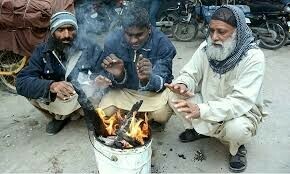KARACHI: As the Sindh Institute of Urology and Transplantation marks four decades of its service to humanity, a major milestone that couldn’t have been achieved without an active support of society, the SIUT is looking for a bigger support from the state, civil society and the media to meet the many challenges it faces in securing poor patients’ right to quality healthcare.
This was stated by SIUT director Dr Adibul Hasan Rizvi while speaking to journalists at the conclusion of a seminar held to highlight the SIUT’s services over the past four decades.
The event is to be followed by an international symposium to be held from Dec 8 to 12.
“The financial needs of the institution providing free treatment are continuously growing in the face of growing number of patients, rising inflation and development of new technology for treatment. Our struggle is on and people must come forward to support a cause,” he said.
In addition, a desperate need was to create awareness of deceased organ donation, an act of profound generosity, that saved many lives, he added.
“Though we have obtained approval from all major religious bodies on deceased organ donation for transplantation, people in general have little awareness of the subject. Unfortunately, the institution doesn’t have enough funds to initiate a public awareness campaign and create awareness about it and there is a dire need that media organisations play their role in dispelling public myths and misconceptions surrounding deceased organ donation,” Dr Rizvi stated.
Earlier at the seminar, Dr Rizvi gave a presentation on the SIUT’s philosophy, how it was created and it grew from a small urology ward to a full-fledged hospital with state-of-the-art equipment over the years.
The institution, he said, borne out of the belief that every human being irrespective of his or her class, colour and creed had the right to quality healthcare.
Being a developing country where the state spent a negligible amount (1.7 per cent of the GDP) on health and education and the disparity between the rich and the poor was growing, Pakistan needed more such institutions.
“The road to success of this model passes through the disfranchised population of Pakistan,” he remarked.
Praising Dr Rizvi and the SIUT, director of the Human Rights Commission of Pakistan I. A. Rehman said the SIUT was Pakistan’s identity.
“The doctors here not just treat patients, they feel for them,” he said, adding that the experts at the SIUT had expanded the concept of health service in the country.
He said the state must fulfil its obligation and invest in public healthcare and education so that people with a healthy body and mind could contribute to economic development.
Senior banker currently heading the Institute of Business Administration Dr Ishrat Hussain said things that made the SIUT a success story included a committed leadership who could get similar commitment from its staff, patience and the decision to work in partnership with the government.
“If we all do our best within our domain, within the little space provided to us, maybe we will have more Adib Rizvis in the future,” he said.
Educationist and researcher Prof Arifa Syeda Zehra spoke of qualities that made a human being great. Taking care of people around you with selfless devotion, she said, was among the characteristics needed for a true success.
“Often I find it strange how Dr Rizvi managed to find so many people dedicating their lives to humanity as he has in a country where it is difficult even to find like-minded people,” she said.
Chief Executive Officer of the Dawn Group of Media Hameed Haroon criticised the government and civil society (the rich) for their lack of support for the SIUT and said that the facility had been facing serious financial constraints and did not have sufficient funds to meet its growing needs.
Sharing data on SIUT services, he said: “We must not lie to ourselves. This model of public-private partnership is not working. There are still families camping out [near the SIUT] and a long waiting list.
“The staff don’t lack the drive to serve people, they lack the money. It (the institution working in difficult circumstances) could be a Sufi’s sacrifice but not a model of active support from civil society.”
Senior journalist Zubeida Mustafa also spoke.
The programme was moderated by MPA and seasoned TV anchor Mehtab Akbar Rashdi.
Published in Dawn, December 5th, 2015















































